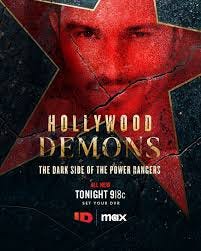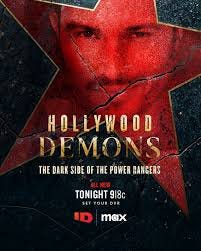'Hollywood Demons' Episode 3 Review
Viewer/Reader discretion is advised. This material contains sensitive content that some may find disturbing.
"The Dark Side of Power Rangers," episode 3 of "Hollywood Demons," delves into the tumultuous behind-the-scenes reality of the iconic children's show, "Mighty Morphin Power Rangers" and the franchise.
The episode paints a stark contrast between the on-screen heroism and the off-screen struggles endured by the cast.
The episode highlights the intense pressure placed on the actors to maintain a superhero persona, as noted by Dr. Drew Pinsky. This pressure was compounded by non-union contracts that, according to Tony Oliver, an EP/Writer, essentially allowed for exploitative working conditions. A particularly disturbing anecdote involves a stuntman working in extreme heat until he required ambulance assistance, leading to showrunner Haim Saban offering money to anyone willing to replace him.
The rapid success of the show, with 4.8 million views in its first season, led to immense fame, particularly for Jason David Frank (JDF). However, this success came at a cost. The episode reveals the tragic story of JDF's older brother, Erik Frank, who also appeared on the show, and his death by suicide in 2001, fueled by depression stemming from a perceived lack of success compared to his brother. JDF carried significant guilt after Erik’s death.
(Also not mentioned in the episode, they should’ve mentioned this) Further darkness is revealed through David Yost's experiences with homophobia on set, leading to his mid-season departure from "Zeo."
Ricardo Medina Jr.'s murder of his roommate with a samurai sword, for which he was eventually convicted of manslaughter, also highlights the extreme personal struggles faced by some cast members.
The episode also addresses the dangerous impact of the show's action sequences on young viewers. Concerns were raised about children imitating the show's violence, with reports of playground injuries and studies suggesting a link between the show and increased classroom violence. The show was forced to produce PSAs to combat this.
Financial exploitation is another major theme. While Haim Saban profited immensely from the show's merchandise and revenue, the actors received minimal compensation. The original trio, Austin St. John, Thuy Trang, and Walter Jones, were replaced after requesting a percentage of toy sales. Future rangers were warned against similar demands. Nakia Burrise's experience, receiving a mere $720 before taxes for her first check, exemplifies this exploitation. Walter Jones also faced career limitations post-Power Rangers, being told he wasn't an "actor" due to his role, he was cast in an episode of “Buffy The Vampire Slayer” as a student.
The episode also covers the legal troubles of Austin St. John, who faced fraud allegations related to the CARES Act.
Furthermore, it details the shift towards unionization, which began with "Time Force," leading to increased use of stunt doubles.
The tragic deaths of Thuy Trang in a car accident and Pua Magasiva by suicide, following domestic violence allegations, are also explored.
The episode concludes with the examination of Jason David Frank’s life, his struggles with depression and bipolar disorder, and his eventual suicide in 2022.
Dr. Drew Pinsky analyzes JDF's toxicology report, revealing a complex mix of medications and substances.
He emphasizes the importance of empathy and support, urging viewers to remember that behind the on-screen personas are real people facing real struggles.
If you or someone you know is struggling mental health or substance abuse, please seek help. Here are some resources that can provide support and treatment:
SAMHSA National Helpline: 1-800-662-HELP (4357) This confidential resource offers referrals to local treatment facilities, support groups, and community-based organizations.
Substance Abuse and Mental Health Services Administration (SAMHSA): https://www.samhsa.gov Offers a wealth of resources on substance abuse and mental health.
Call or text 988 or chat at 988lifeline.org: to reach the 988 Suicide & Crisis Lifeline. This service provides 24/7, free and confidential support for people in distress, as well as prevention and resources
Crisis Text Line: Text HOME to 741741 Provides free, 24/7 support for those in crisis.




